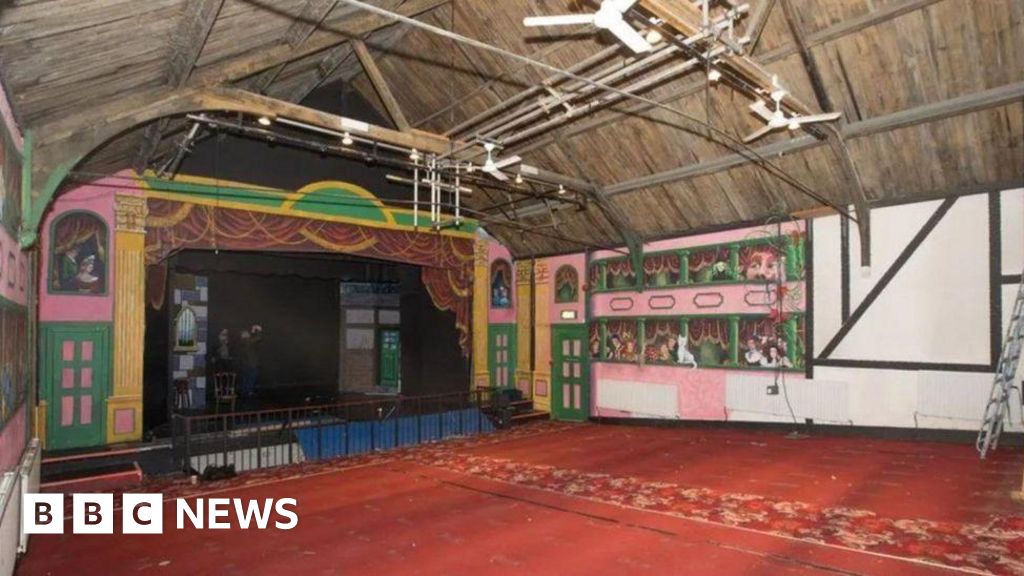- Baseball
We found 15 universally flattering lipsticks that look amazing on all skin tones
时间:2010-12-5 17:23:32 作者:Housing 来源:Australia 查看: 评论:0内容摘要:“I was so afraid to mention the word pig heart,” Griffith said. He marveled that patient David Bennett responded with a joke about oinking and made clear if the“I was so afraid to mention the word pig heart,” Griffith said. He marveled that patient David Bennett responded with a joke about oinking and made clear if the
Gaw has rescued more than 2,500 pugs in South Africa over the years after she and her husband sold their house, lived in a trailer home for a while and generally reset their lives to help as many dogs in need as they could.They eventually established their Pug Rescue South Africa in Johannesburg in 2010 because of an overflowing number of dogs in their house. It was “never part of the plan” when they looked ahead to their retirement, said Gaw, who is 63. “Of course, the pugs won,” she added.

The center is currently home to nearly 200 pugs, the latest batch who have hit hard times and need a helping paw. Some of them were abandoned, some sick, and many were given up by owners who couldn’t look after them anymore.Gaw’s pug life started in 2008 when her husband, Malcolm, gave her one as a gift. At a pug club, someone asked if they’d be interested in providing a foster home for “a couple” of pugs. In the first year, the Gaws provided a temporary home to 60 pugs and had 19 in their home at one point — too much fur for one small house.“They are known as the clowns of the dog world, and they can make you laugh,” said Gaw, giving her own breed guide. “Always in your space. They’re just an amazing, lovable breed. And you always have hair on you.”

The rescue center’s staff do their best to keep order. The routine is: 5.15 a.m., the dogs wake up and come out of the cottages where they sleep in groups according to their “age and personality,” said Gaw. Then there’s breakfast, medication for those that need it, bathtime, playtime, grooming time, midday snacks, afternoon rest, more playtime, evening meal, more medication, and all pugs back in their rooms between 6-7 p.m.Fights occasionally break out. The veterinary bill for the center is nearly $40,000 a year, and it’s a constant process of rescue, rehabilitation, and then trying to rehome them, with more pugs arriving all the time.

“The operation doesn’t stop,” said Gaw.
There is a reason why so many pugs need a new home. Their short muzzles, a mark of the breed, give rise to breathing problems and other health issues like eye and ear infections, she said. A pug’s vet costs are not to be sniffed at and Gaw warns prospective owners to do their homework and get a good pet insurance policy: “You’re going to need it.”AP correspondent Donna Warder reports that a racially biased test has kept thousands of Black patients from receiving a much-needed kidney transplant.
A few years ago, the National Kidney Foundation and American Society of Nephrology prodded laboratories to switch to race-free equations in calculating kidney function. Then the U.S. organ transplant network ordered hospitals to use only race-neutral test results in adding new patients to the kidney waiting list.“The immediate question came up: What about the people on the list right now? You can’t just leave them behind,” said Dr. Martha Pavlakis of Boston’s Beth Israel Deaconess Medical Center and former chair of the network’s kidney committee.
Pavlakis calls what happened next an attempt at restorative justice: The transplant network gave hospitals a year to uncover which Black kidney candidates could have qualified for a new kidney sooner if not for the race-based test — and adjust their waiting time to make up for it. That lookback continues for each newly listed Black patient to see if they, too, should have been referred sooner.Between January 2023 and mid-March, more than 14,300 Black kidney transplant candidates have had their wait times modified, by an average of two years, according to the United Network for Organ Sharing, which runs the transplant system. So far more than 2,800 of them, including Evans, have received a transplant.
- 最近更新
- 2025-07-07 09:54:59Cooking in Gaza is now a toxic affair
- 2025-07-07 09:54:59Pakistan, Afghanistan move towards ‘restoring ties’ in talks with China
- 2025-07-07 09:54:59North Korea sending teams to Russia’s Kursk to aid war-hit area’s recovery
- 2025-07-07 09:54:59Syria church bombing kills 25, dozens wounded
- 2025-07-07 09:54:59Dashcam captures huge blast in Ashdod in Israel
- 2025-07-07 09:54:59First Test: India and England evenly poised after day three at Headingley
- 2025-07-07 09:54:59Taiwan detects dozens of Chinese aircraft near island after UK ship patrol
- 2025-07-07 09:54:59Petro’s labour reform referendum suspended by Colombia’s Council of State
- 热门排行
- 2025-07-07 09:54:59above the nation's capital
- 2025-07-07 09:54:59Thailand readies homecoming for stolen ancient statues located in US museum
- 2025-07-07 09:54:595 retirement withdrawal steps to make your money last longer
- 2025-07-07 09:54:59What is famine, and why is Gaza at risk of reaching it soon?
- 2025-07-07 09:54:59AOLThis comfy couch is only $290 at Walmart right now
- 2025-07-07 09:54:59Russia-Ukraine war: List of key events, day 1,188
- 2025-07-07 09:54:59L’Oréal Revitalift Hyaluronic Acid Face Serum
- 2025-07-07 09:54:59Rescue bid launched for hundreds trapped in South African gold mine
- 友情链接
- Have Israel and Iran agreed to a ceasefire? What we know Last body found after boat capsizes on Lake Tahoe in storm, bringing death toll to 8 House Beautiful7 ways to prepare your home for extreme heat, according to experts Trump delivers angry outburst at Israel-Iran ceasefire breaches Walmart just announced its biggest sale of the summer: These 25 deals are already live Iran hoping to “draw a line” under confrontation with US We found 15 universally flattering lipsticks that look amazing on all skin tones US, Israeli strikes on Iran nuclear sites: How big are radiation risks? Trump’s budget demands, Iran to split NATO summit focus What is life like for Gaza evacuees? What’s with Iran’s Death to America chant? Iranian missile barrage strikes Israel after deadline Trump announced for ceasefire p… House Beautiful7 ways to prepare your home for extreme heat, according to experts US, Israeli strikes on Iran nuclear sites: How big are radiation risks? Martha Stewart LivingHow to deep clean a ceiling fan (without making a mess) Firefighters battle a wildfire burning out of control on the Greek island of Chios 20 genius kitchen accessories under $30 that every kitchen needs How the Iran-Israel ceasefire is meant to play out AOLSave up to 50% on pillows from Coop, Lincove, and Tempur-Pedic during early Prime Day sales Iran hoping to “draw a line” under confrontation with US Central Park hits temp record last seen on this date in 1888 as heat wave hits easter… smart speakers or the latest in tech such as Firefighters battle a wildfire burning out of control on the Greek island of Chios Iranian missile barrage strikes Israel after deadline Trump announced for ceasefire p… Iran hoping to “draw a line” under confrontation with US Early-season heat dome brings highest temperatures in years to parts of Eastern U.S smart speakers or the latest in tech such as These are the best hair growth products for men, according to hair loss experts Clever Dude6 hidden fire hazards in most homes that still go unnoticedRead the full story Cute and flattering not-too-short shorts that will keep you cool all summer long
